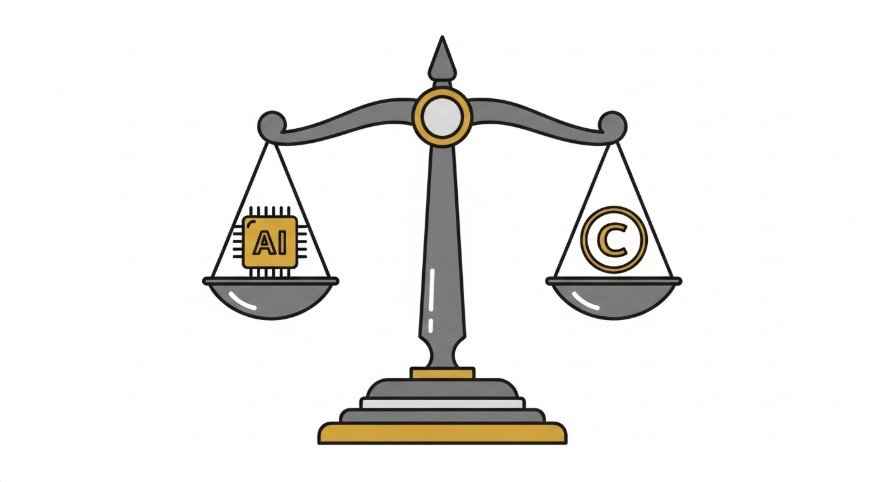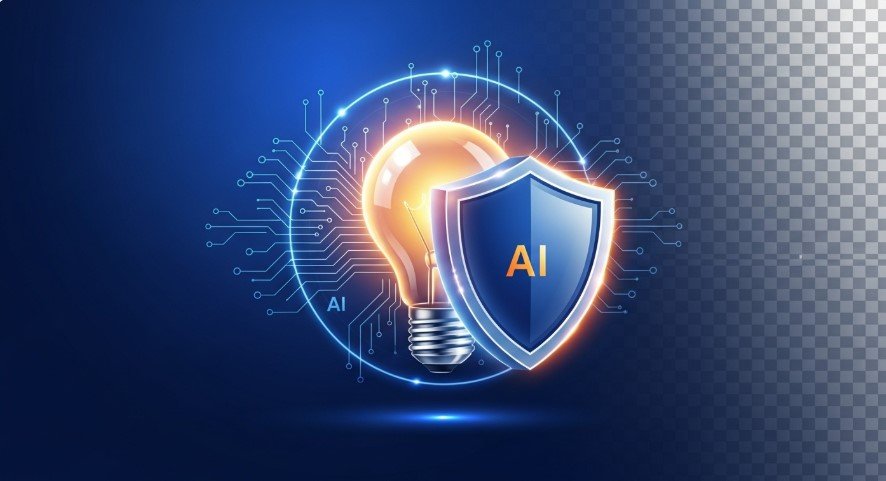Artificial intelligence tools like ChatGPT help creators write, brainstorm, and edit. But many worry: can ChatGPT steal your ideas? This question has sparked debates, lawsuits, and confusion. As AI grows, creators fear their work could be misused or replicated without permission. This post explains how ChatGPT works, explores legal and ethical concerns, and shares practical ways to protect your intellectual property (IP). We’ll answer your questions using clear, up-to-date information as of July 2025.
What Is ChatGPT and How Does It Work?
ChatGPT, built by OpenAI, is an AI model that generates human-like text. It uses natural language processing (NLP) and machine learning, trained on massive datasets like books, websites, and articles. These datasets help ChatGPT understand language patterns and respond to prompts.
When you input text, ChatGPT processes it to create a response. OpenAI’s terms say user inputs aren’t directly used for training, but they may be reviewed to improve the model. This raises concerns about whether your ideas could be stored or reused. Understanding this process is key to addressing the fear of idea theft.
Can ChatGPT Steal Your Ideas?
ChatGPT doesn’t “steal” ideas like a human would. It doesn’t have intentions or ownership goals. Instead, it generates text based on patterns from its training data, which includes publicly available content. If your work is online, it might be part of that data. This means ChatGPT could produce outputs similar to your ideas, especially if they’re widely shared.
Legal cases highlight this issue. In September 2023, authors like George R.R. Martin sued OpenAI, claiming their works were used without permission to train ChatGPT, calling it “systematic theft”. In December 2023, The New York Times sued for plagiarism, though OpenAI denied the claims. These lawsuits show the tension: AI doesn’t steal intentionally, but its use of data can feel like theft to creators.
Learn more about AI’s impact on content in How to Humanize ChatGPT Content.
Legal Issues Around AI and Copyright
The law around AI and intellectual property is unclear. A 2023 U.S. court ruling stated AI-generated content without human input can’t be copyrighted. This means ChatGPT’s outputs aren’t protected unless humans significantly edit them. However, using copyrighted material to train AI remains a legal gray area.
Key Legal Points
- Fair Use: This allows limited use of copyrighted material for things like research. But applying it to AI training is debated, as seen in ongoing lawsuits.
- Data Privacy: OpenAI may store user inputs for model improvement, raising privacy concerns.
These legal battles will shape how AI handles intellectual property. For now, creators must be proactive to protect their work.

How to Protect Your Ideas from AI
You can take steps to keep your work safe while using AI tools like ChatGPT. Here are seven practical tips:
- Use Incognito Mode: This prevents ChatGPT from saving your inputs for model improvement.
- Opt Out of Data Usage: Add a
robots.txtfile to your website to block AI crawlers from scraping your content. - Limit Sensitive Inputs: Don’t share highly original ideas with AI. Use it for general tasks like editing or brainstorming.
- Choose Privacy-Focused Tools: Try alternatives like Claude or Perplexity, which may prioritize user privacy.
- Repurpose Your Content: Use AI to enhance your existing work, keeping control over your original ideas.
- Credit Sources: Always cite your sources to maintain ethical standards and encourage others to do the same.
- Stay Updated: Follow AI and IP law developments to protect your work effectively.
Check out Does ChatGPT Track You? Privacy Risks for more on AI privacy.
Using AI Ethically as a Creator
Protecting your work goes hand-in-hand with using AI responsibly. Here are some ethical tips:
- Respect Others’ Work: Don’t use AI to copy or misrepresent someone else’s content.
- Be Transparent: Tell your audience if you use AI to build trust.
- Use AI as a Helper: Let AI assist your creativity, not replace it.
- Acknowledge Influences: Credit potential sources, even if AI draws from broad data.
See how AI can assist in How to Use ChatGPT for UX Research Plan.
Alternatives to ChatGPT
If privacy concerns make you hesitant, consider these AI tools with different features or privacy policies:
| Tool | Developer | Key Features |
|---|---|---|
| Claude | Anthropic | Emphasizes safety and ethical AI use |
| Gemini | Integrates with Google’s ecosystem | |
| Perplexity | Perplexity | Focuses on privacy and search-based AI |
| Copilot | Microsoft | Great for coding and creative tasks |
| Meta AI | Meta | Supports various creative applications |
These tools may offer better privacy or suit specific needs. Compare their features to find the best fit.
Conclusion
ChatGPT doesn’t steal ideas in the way humans do, but its use of public data raises valid concerns. Legal battles, like the 2023 lawsuits against OpenAI, show the need for clearer AI regulations. By using incognito mode, opting out of data usage, and choosing privacy-focused tools, you can protect your work. Use AI as a tool to enhance your creativity, not replace it. Stay informed about AI and IP laws to keep your ideas safe.
